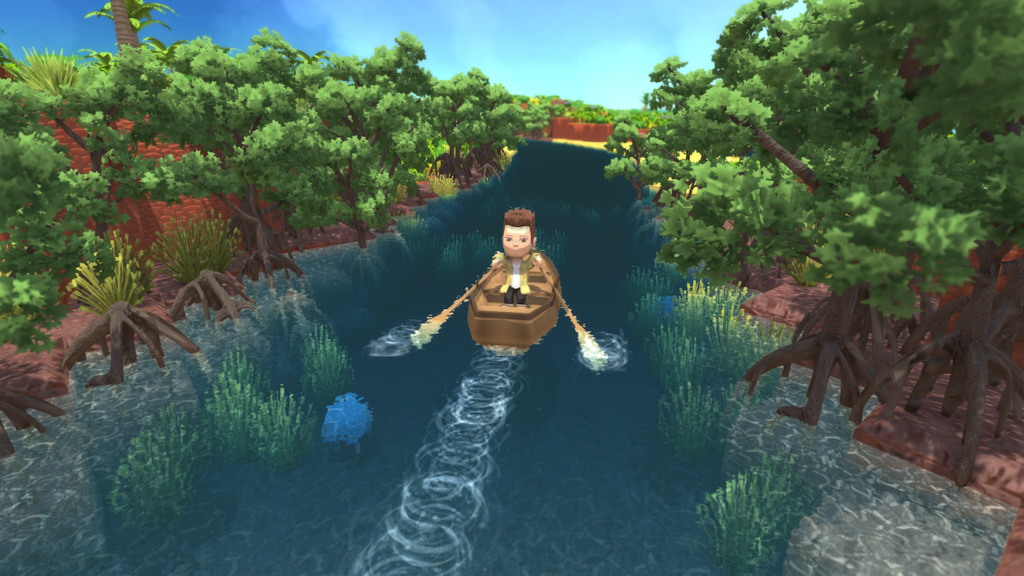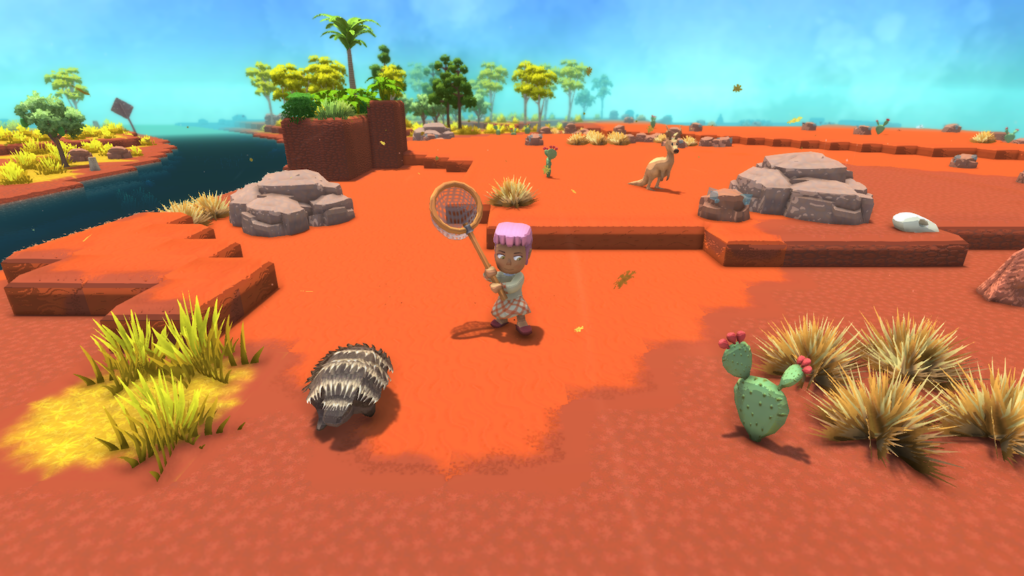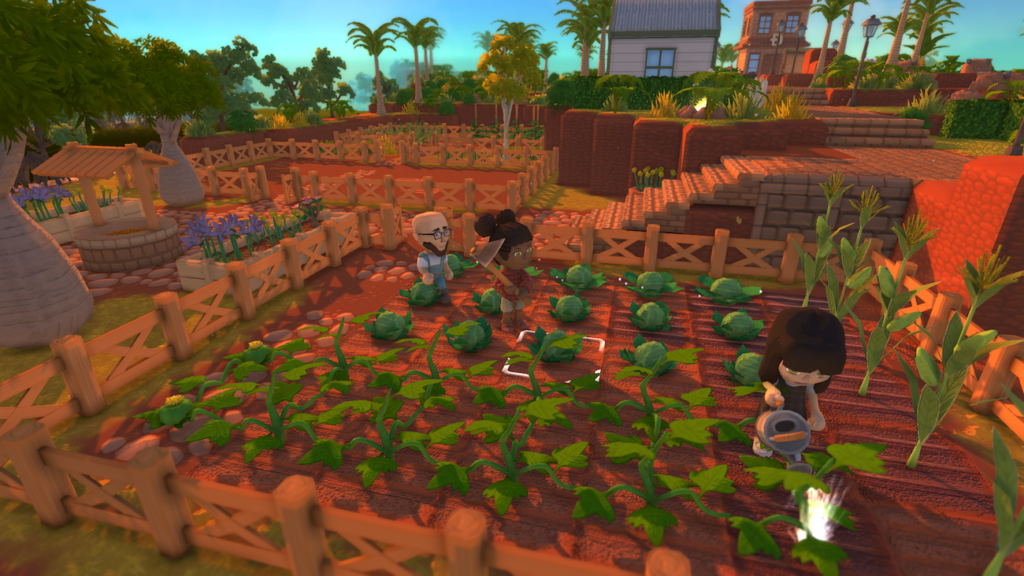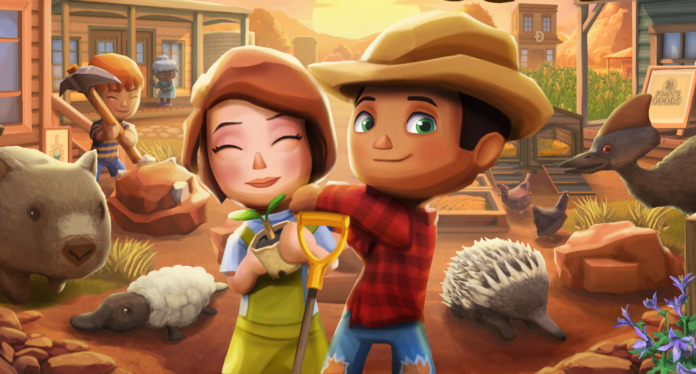James Bendon always considered himself a hobbyist until he released his first commercial project, Dinkum. The game is an Australian take on Animal Crossing and really captures that laidback Down Under vibe. It took him five years to release the game in Early Access, and all that time, he worked on it by himself. But that’s just the way he likes it. “To be honest, I really like working alone,” he says. “Not having deadlines or meetings to attend is very freeing.” Bendon acknowledges that he couldn’t have done it without the financial and emotional support from his wife.
For the first three years of development, Bendon kept the game mostly to himself. After that, he allowed a select few family members and friends to play the game so he could gather feedback. “This is still my favorite way to get insight into what new features and changes should be made to Dinkum.” After releasing the game to the public, the solo dev got a severe case of post-game release depression. “The game sold much better than I expected, and the reviews and feedback were great. I should have been happy, but I wasn’t,” he says. “I’ve since spoken with and read about this feeling from other devs who have experienced it after release. Since then, I feel like I’ve learned how to balance work and life a bit better.”
Why did you become a solo developer?
“I considered myself a hobbyist until very recently, when Dinkum was released. I had made dozens of smaller games and prototypes in my spare time while I worked my day job, but Dinkum is my first commercial product. So I guess I went with solo development because it was what I was used to. When I had the opportunity to work on a game full time, I didn’t have any budget and it was a bit of a risk. So with financial and emotional support from my partner, I dove in by myself.”
What are the biggest advantages of working solo?
“You get to have intimate knowledge of the whole project. I know how it all works, because I wrote it. I can iterate and add features somewhat quickly when I need to, without a major impact on other areas of the games. I think products from solo devs often feel a bit different. Like, someone had an idea for a game they’ve always wanted, so they made it themself. Maybe there was some stubborn part of me that felt like I had to do it all by myself?”
And the biggest pitfalls?
“There can sometimes be a lack of focus when working alone. I will often start work on a new feature, get bored and jump to another feature. Of course, self imposed deadlines can help mitigate this, but I do find it hard to focus on one task. Especially when you’re testing a new feature and notice something wrong and decide to fix it then and there.”

What’s your creative process?
“For the first 3 years or so, I worked on Dinkum alone with nearly no one else playing it. For the most part, I was making the type of game I wanted to play. Half way through, I started to share the game and would watch friends/family play it. This is still my favorite way to get insight into what new features and changes should be made to Dinkum.”
How do you stay motivated through (years of) development?
“I think the biggest motivator was having my partner at the time (now wife) support me. She would head off to work and let me fool around making my silly little game. She really believed in me, and allowed me to chase my dreams. So I guess it’s easy to stay motivated and push yourself when you know someone else is doing the same and more, just for you.”
Will you ever work in a team or is it only solo for you?
“To be honest, I really like working alone. Not having deadlines or meetings to attend is very freeing. But, if I want to make my next project bigger, I’m not against having some help.”

How did you get the idea for Dinkum? (The phrase ‘fair dinkum’ is Aussie slang for ‘genuine’ or ‘true’.)
“I started calling the game Dinkum pretty early on. Growing up, ‘Fair Dinkum’ was a somewhat common phrase, and older people would use it often. I liked the idea of giving the game a one word title, and Dinkum felt right. Dinkum gave me the same kind of vibe as the slice of Australiana I was trying to offer. The runner up name was “Town Under”, but I’m glad I went with Dinkum.”
“I just wanted to create a cute little world to play in and let the player learn the rules of living in that world. I alway loved life Sim games like Animal Crossing and Harvest Moon growing up. I’m also a big fan of sandbox and survival games, so I wanted to make something that mixed all those types of games I loved. The main intention was to not hold the player’s hands too much, or force a type of gameplay.”
What’s the biggest lesson learned from this project?
“One of the biggest lessons I’ve learnt is how to incorporate player feedback into your game. I’ve found that player’s are great at identifying which part of the game is lacking, but I’ve found they are not always great at identifying exactly what the game needs. So, I try to incorporate the suggestions and feedback in my own way. A way that still feels true to my original intention and vision for Dinkum. And of course, releasing a product to the public was a massive learning experience in itself.”

The toll on your mental health can be quite high for solo developers. How do you deal with that?
“There have definitely been some rough spots. Having my partner supporting me for 5 years while I worked on Dinkum did weigh on me, but I was very lucky to have her unconditional love and support. Although there have been rough spots along the way, the hardest part for me was actually the first two weeks after release. The game sold much better than I expected, and the reviews and feedback were great. I should have been happy, but I wasn’t.”
“I still don’t know what happened in those first two weeks. Maybe it was the stress of releasing the game, trying to message everyone that contacted me back, or fix every bug I read about. Maybe it was the fact Dinkum wasn’t mine alone any more. I’m not sure what it was, but it was rough. I’ve since spoken and read about this feeling with other devs who have experienced it after release. Since then, I feel like I’ve learnt how to balance work and life a bit better.”

